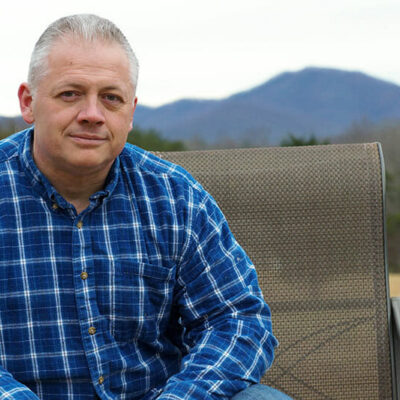Starting in February, two dozen locals will give their Tuesday nights over to the study of rocks, plants, and birds—and together will pledge to devote nearly 1,000 hours annually to environmental study and education. They’ll be 2014’s class of Rivanna Master Naturalists, the newest members of a statewide corps of highly trained volunteers.
Charlottesville is the epicenter of the Commonwealth’s Master Naturalists program: The local chapter was one of the first established when the volunteer effort was founded in 2006, and the program coordinator works out of the Charlottesville-Albemarle Virginia Cooperative Extension office. Current coordinator Alycia Crall, who took the post in January, said it’s a natural fit—Charlottesville is centrally located for the 2,000-plus program volunteers around the state, and it’s home to one of the most active and fastest-growing chapters.
There’s an increasing need for volunteer manpower to aid Virginia’s natural resource agencies, Crall said, “so there’s a lot of excitement over seeing this level of growth.”
Becoming a Master Naturalist is time-intensive, explained Ida Swenson, who helped found the Rivanna chapter and sits on its board. Coursework includes 40 hours of instruction during weekly Tuesday night classes and frequent Saturday field trips. Instructors cover basic ecology and scientific principles, then dive into a range of natural subjects, always with an eye on the local environment: ornithology, geology, botany.
Swenson said the course brings together nature lovers from all walks of life.
“We have members ranging in age from 19 to people in their 70s,” she said, the majority of whom aren’t professional scientists. “We have people who never graduated from college, and people who have their doctorates. It’s really varied.”
But the classes are just the beginning. Another eight hours of instruction in a specific field comes before the newly trained naturalists dive into their volunteer work, 40 hours of which is required annually for them to stay active members.
Some devote their annual hours to eradicating invasive plants. Others help maintain the Rivanna Trail, or teach environmental education classes in schools and at the Ivy Creek Natural Area. And many Master Naturalists become citizen scientists, collecting data on everything from the quality of Virginia’s vast network of waterways to fluctuations in wildlife populations.
Those efforts are becoming increasingly important to researchers around the world, said Crall, because monitoring a changing global environment requires a lot of boots on the ground. Educated volunteers by the thousands can gather information day after day from a specific location—weather patterns, the number and kinds of birds in their backyards—“and we can use that data to do analyses and answer research questions we can’t reliably answer using traditional scientific methods.”
For the state agencies and nonprofits that fund the Master Naturalist program—the Department of Forestry, the Department of Environmental Quality, soil and water conservation districts, and others—there’s also an immediate benefit. The army of volunteers, which Crall said is growing by about 500 new members a year across the Commonwealth, helps fill in gaps at a time when budgets are stretched thin.
“There’s so much to be done that paid staff from all these agencies just don’t have the time to do,” she said. “These volunteers are just invaluable.”
Get involved:
Learn more about becoming a Virginia Master Naturalist in one of two info sessions at the Ivy Creek Natural Area, 10-11am Saturday, January 4 and 7pm Tuesday, January 7. The deadline for applications—available at www.vmn-rivanna.org—is January 10. Classes begin February 11.





